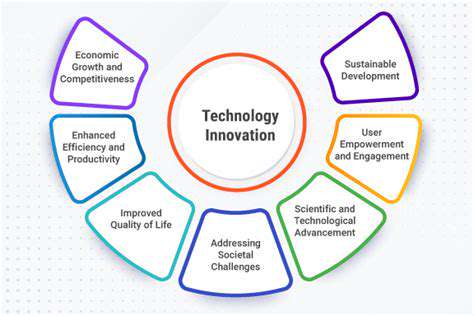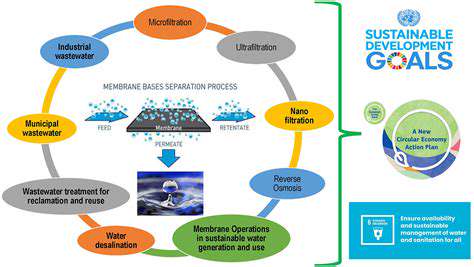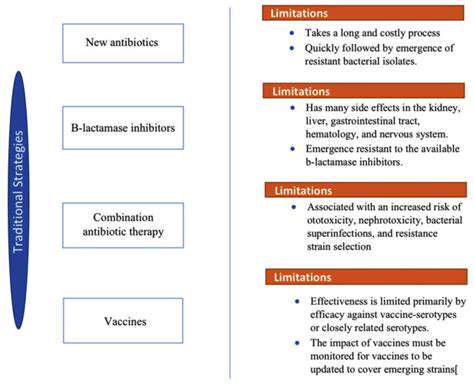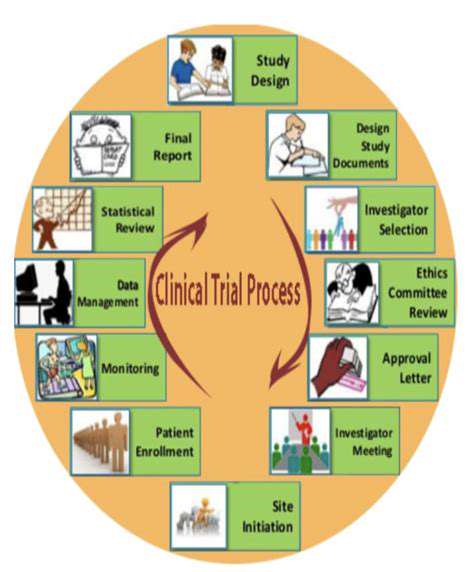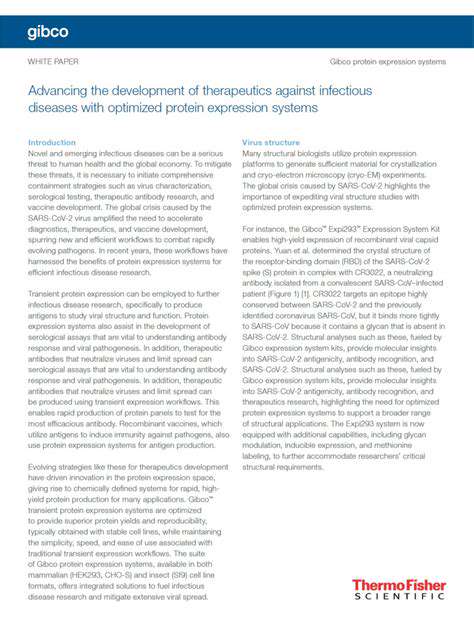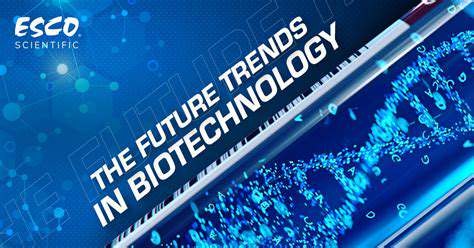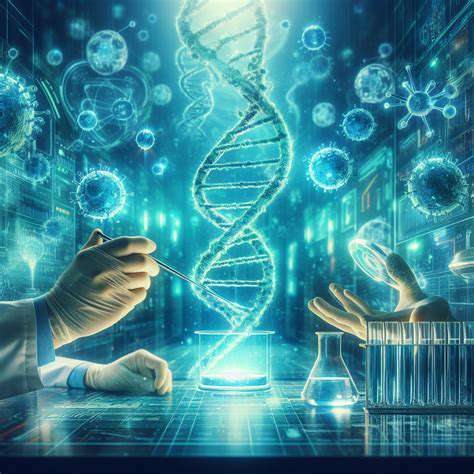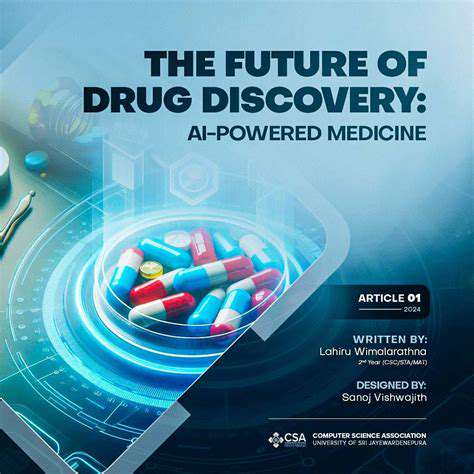Introduction to Synthetic Biology and Bioplastics
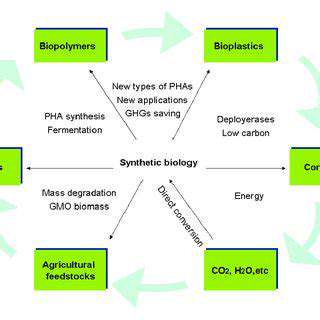
Defining Synthetic Biology
Synthetic biology is a rapidly evolving field that applies engineering principles to biology. It involves designing and constructing new biological parts, devices, and systems, or re-designing existing natural biological systems for useful purposes. This approach allows researchers to manipulate genetic material, cellular processes, and even entire organisms to create novel functionalities and solutions to complex problems.
At its core, synthetic biology seeks to understand the fundamental principles governing biological systems and then use this knowledge to engineer new ones. This often involves the creation of artificial genetic circuits that can perform specific functions, such as sensing environmental changes or producing useful molecules.
Key Components and Tools
A crucial component of synthetic biology is the ability to design and synthesize DNA sequences. This involves the use of specialized tools and techniques, such as genetic engineering, DNA sequencing, and gene synthesis. These tools allow researchers to create precise modifications to the genetic material within cells.
Another critical element is the ability to characterize and understand the function of the engineered biological systems. This often involves a combination of experimental methods such as microscopy, gene expression analysis, and metabolic flux analysis. These methods enable us to understand how the newly designed systems behave and interact with their surroundings.
Applications in Various Fields
The applications of synthetic biology are diverse and span numerous fields. One prominent application is in medicine, where synthetic biology is being used to develop new therapies for diseases like cancer and genetic disorders. Scientists are also exploring the use of synthetic biology to create biofuels, bioremediation agents, and efficient biomanufacturing processes.
Synthetic biology is revolutionizing agriculture by enabling the development of genetically modified crops with enhanced traits. These crops can be more resistant to pests, diseases, and environmental stresses, leading to increased yields and improved food security.
Furthermore, synthetic biology is being explored in environmental science for bioremediation of contaminated sites and for the development of sustainable biotechnologies.
Ethical Considerations and Challenges
The rapid advancement of synthetic biology raises important ethical considerations that must be carefully addressed. One key concern is the potential for unintended consequences, such as the creation of organisms with unforeseen properties or the release of genetically modified organisms into the environment. Careful risk assessment and regulatory frameworks are essential to mitigate these risks.
Another significant challenge is the need for robust safety protocols and guidelines to prevent the misuse of synthetic biology tools. Open communication and collaboration within the scientific community, policymakers, and the public are essential for navigating these complexities and ensuring responsible development and application of this powerful technology.
The Future of Synthetic Biology
The future of synthetic biology is promising, with significant potential for advancements in various fields. We can anticipate further breakthroughs in designing and constructing complex biological systems with sophisticated functions. This will likely lead to the development of new therapies, sustainable solutions, and innovative technologies for addressing global challenges.
The integration of synthetic biology with other emerging fields, such as artificial intelligence and machine learning, holds great promise for accelerating research and development in this area. Continued research and investment in this field will undoubtedly lead to transformative discoveries and applications in the years to come.
Metabolic Engineering for Optimized Bioplastic Production
Harnessing Microbial Factories for Bioplastic Synthesis
Metabolic engineering offers a powerful approach to re-engineer microorganisms, transforming them into efficient bioplastic factories. By manipulating their metabolic pathways, researchers can redirect cellular resources towards the production of specific biopolymers. This involves identifying and optimizing key enzymes involved in the biosynthesis of these polymers, potentially leading to significant improvements in yield and cost-effectiveness compared to traditional methods. Understanding the intricate interplay of cellular processes is crucial to achieving optimal bioplastic production, and metabolic engineering provides a framework for this intricate manipulation.
This approach leverages the inherent capacity of microorganisms to synthesize a wide range of molecules, allowing for tailored production of bioplastics with specific properties. The ability to fine-tune these processes opens the door to developing bioplastics that meet diverse industrial needs, from packaging applications to medical implants.
Optimizing Substrate Utilization for Enhanced Bioplastic Production
A critical aspect of metabolic engineering for bioplastic production is optimizing the utilization of carbon sources. By modifying the metabolic pathways of microorganisms, they can be engineered to effectively convert inexpensive and abundant feedstocks, such as agricultural residues or industrial byproducts, into bioplastics. This strategy not only reduces production costs but also minimizes environmental impact by diverting waste materials from landfills.
Furthermore, the selection of suitable substrates can influence the properties of the resulting bioplastics. For example, different sugars can lead to variations in the molecular structure and consequently, the mechanical properties of the bioplastic. Strategic substrate selection is therefore essential for achieving desired bioplastic characteristics.
Improving Bioplastic Properties through Pathway Modification
Metabolic engineering can be employed to enhance the properties of bioplastics by modifying the biosynthetic pathways. This involves introducing or modifying genes encoding enzymes involved in polymer synthesis, potentially increasing the molecular weight, crystallinity, and overall mechanical strength of the bioplastic. This targeted approach can lead to bioplastics with enhanced performance characteristics, comparable to or even exceeding those of petroleum-based plastics.
Enhancing Bioplastic Production Efficiency through Strain Development
Strain development plays a vital role in optimizing bioplastic production. Metabolic engineering techniques can be used to create microbial strains with improved growth rates, enhanced bioplastic yields, and reduced production times. This involves identifying and incorporating genetic elements that enhance the efficiency of the entire metabolic pathway, from substrate uptake to polymer secretion.
Furthermore, engineering microbial strains to produce bioplastics with specific properties, like enhanced thermal stability or biodegradability, can be achieved through the incorporation of tailored genetic modifications. The development of robust and efficient microbial strains is crucial for scaling up bioplastic production and making it economically viable.
Overcoming Challenges and Future Directions
While metabolic engineering offers immense potential for optimizing bioplastic production, challenges remain. These include optimizing the cost-effectiveness of the process, ensuring scalability of production, and addressing potential environmental concerns associated with the production of the engineered microorganisms. Further research is needed to address these challenges and to explore novel strategies for enhancing bioplastic properties and production efficiency.
Future research should focus on developing sustainable and economically viable processes for bioplastic production. This includes exploring novel metabolic pathways, developing more efficient and robust microbial strains, and optimizing downstream processing methods for bioplastic recovery and purification. Ultimately, the development of a comprehensive approach to synthetic biology will be crucial for realizing the full potential of bioplastics in addressing global challenges.

